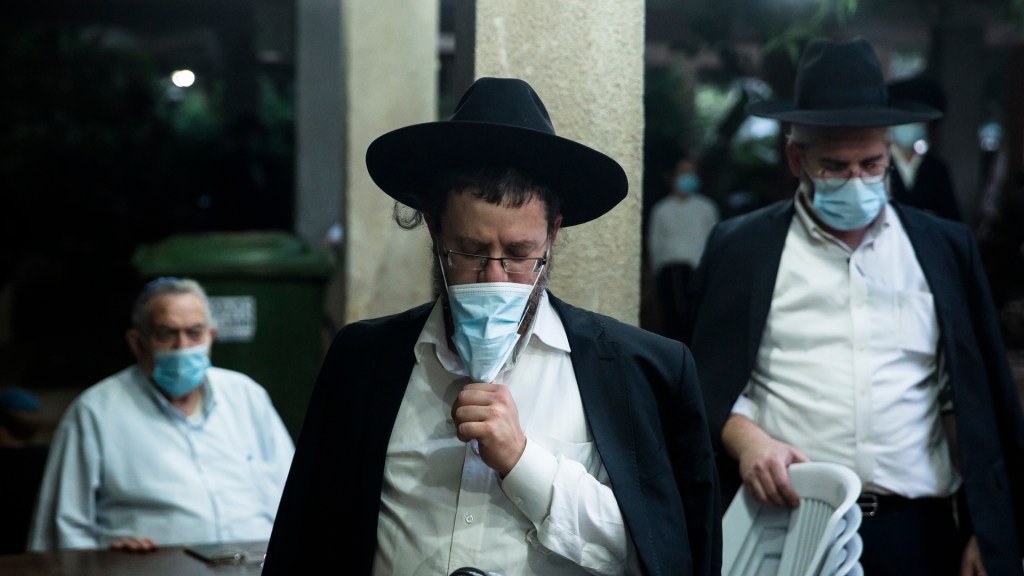So farewell, then, to Israel’s vaccine passport, the green pass. Less than three months after coming into effect, the COVID vaccination certification scheme was scrapped today, along with almost all of the remaining COVID-19 restrictions in public places.
Israel was the first country to introduce a vaccine passport back in March. Cafés, bars, restaurants, gyms and theaters were allowed to reopen to the public after months of lockdown, provided they only admitted vaccinated (and recovered) people. The pass took the form of a QR code downloaded from the health ministry or stored in a phone app.
The scheme was vocally opposed by a small and passionate minority, but most Israelis were just relieved to be able to return to something approaching normality. Restaurateurs and gym owners, meanwhile, were happy they could finally reopen, even if they were sometimes frustrated by the restrictions the green pass imposed. In particular, venues were effectively banned from admitting children, who aren’t eligible for vaccination — fine for bars, terrible for cinemas and ice cream parlors.
The scaremongers who said that vaccine certificates would be some lasting form of social control were wrong.
In reality, though, cafes were full of kids as the green pass was widely ignored. In the last three months, I was only asked to show my pass twice. A few times I was asked if I had one, but taken at my word without needing to show the ‘paperwork’. Most often, I wasn’t challenged at all. Enforcement of the green pass rules was close to non-existent; as long as coronavirus cases kept falling, nobody was very bothered.
And cases did continue plummeting. On Sunday, just four new cases were recorded out of 21,000 tests, a tiny 0.02 percent. Only 94 Israelis are in hospital with COVID-19 currently — and deaths have almost stopped entirely. There have been cases of the South African and Indian variants, but they haven’t taken off. Perhaps Israel has reached something close to herd immunity, with 90 percent of the adult population either vaccinated or recovered.
Things aren’t completely back to normal, though. Israel is still requiring indoor masking in public places, like shops. But this too is under review and might be scrapped in mid-June. The country is also maintaining its tight border restrictions. At present, Israel remains closed to tourism, one of its biggest industries, except for a few small organized (and vaccinated) groups.
The UK government was looking to Israel’s green pass as a model for its own vaccination certificate scheme. Those plans seem to be on hold now Israel has abolished it, according to reports. So was the green pass, discussed worldwide as a model for exiting lockdown, a massive waste of time and energy?
I’m not so sure. Certainly, in Israel it seemed to help encourage younger adults to get the shot, knowing that it meant they’d be able to go out on the town again. It also allowed a lot of reopenings in early March, even though case numbers were still very high. Perhaps those cafes would have reopened within a few weeks anyway, but the extra income helped those businesses a lot.
But Israel didn’t launch the green pass until vaccinations had been open to all for a month, so younger people weren’t excluded from its benefits. Britain’s vaccination program had one of the strongest starts in the world, but has slowed down dramatically since March (Canada is about to catch up, for instance). Can British pubs really ban everyone under-30 when things are scheduled to fully reopen in a few weeks?
Israel’s green pass was also only obtainable a week after the second vaccine dose. The UK’s delayed-dose strategy means that’s still less than half of all adults. Most importantly, though, Israel used the green pass as a route out of lockdown. Places that needed one were closed up until the scheme was launched. Nobody felt they were losing anything; the green pass gave new privileges, it didn’t take anything away.
In Britain, pubs, cafes and restaurants have already reopened — and that pretty much ruled them out of the UK’s vaccine passport plans. A vaccine passport whose only benefit is being able to go to big events hardly seems worth the effort. So it’s hard to say if Israel’s green pass was a successful tool or a pointless waste. It’s probably somewhere in-between.
But one thing we know for sure now: the scaremongers who said that vaccine certificates would be some lasting form of social control were wrong. They were always supposed to be used in the short term, and they proved to be much more temporary than anyone expected.
This article was originally published on The Spectator‘s UK website


















